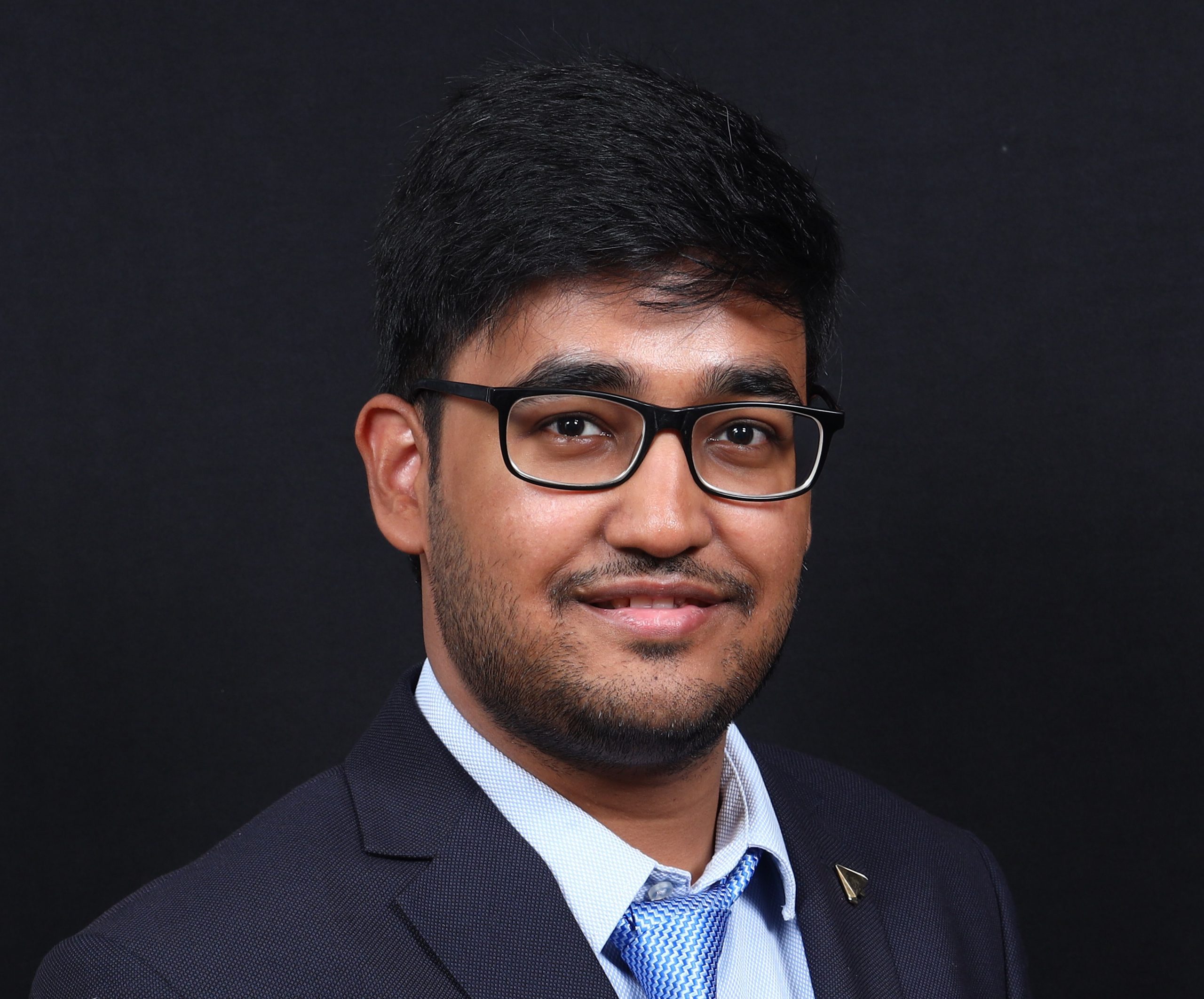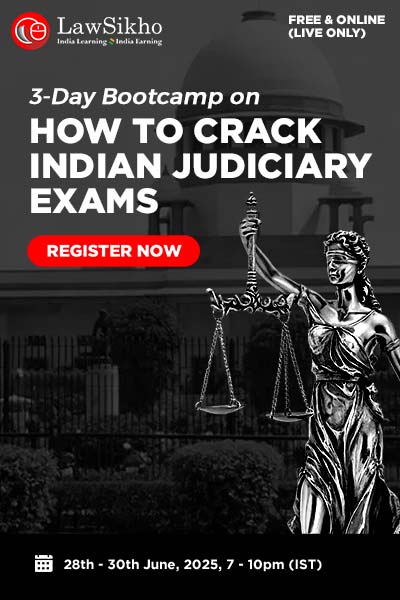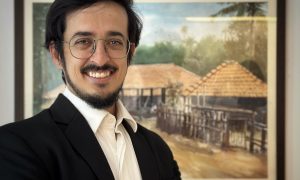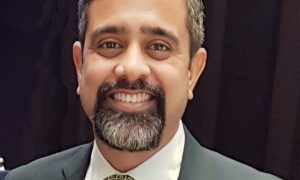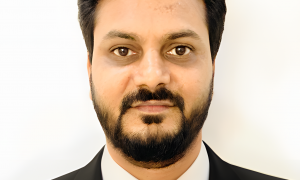This interview has been published by Anshi Mudgal and The SuperLawyer Team
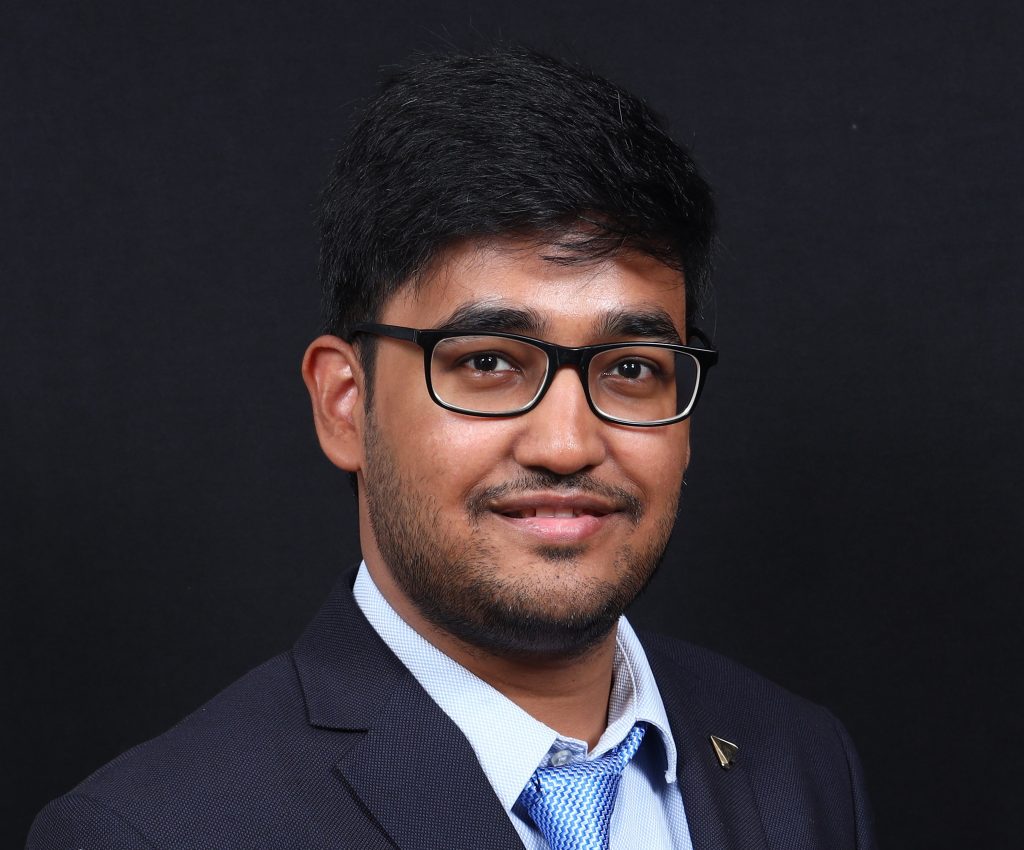
What motivated you to choose law as your career, and what factors influenced this decision? How did your time in law school further fuel your passion for the field and shape your aspirations moving forward?
Back when I decided to pursue law, I did not know what exactly my career graph would look like. I just knew that I had some of the characteristics and skills which lawyers require. I was a voracious reader. I was a deep thinker. And I was a good communicator. Writing and speaking well came naturally to me. Law school was an interesting experience. I prioritized building relationships from my early days. Right from my internship days. In fact, some of my good friends and professional connections today are people who I met while interning with different law firms and offices. So my passion for law grew as I interned with different law firms and offices. I enjoy deep research and writing as much as I enjoy public speaking, and therefore, I thoroughly enjoyed my internships, as well as extra curricular activities in law school. My confidence grew further when I represented my university in National Moot Court Competitions, and Model United Nations.
In the early stages of your career, as you worked with various lawyers and law firms on landmark cases, what was your experience like? What moments or particular cases helped deepen your understanding of the law and shaped your approach as you were learning the ropes? Is there a particular experience you’d like to share with our readers?
The early days of my professional journey, working with different chambers and firms, were indeed a grind. In the very beginning, you have to do a lot of grunt work. Yes, you have to understand the nitty gritties of legal procedures and filings. You initially learn to take notes meticulously, manage files, communicate efficiently with senior colleagues, office staff and clients. It’s only after this stage that you start getting more interesting work. I had an advantage in the sense that I worked with very small setups initially, so bigger responsibilities like drafting pleadings, briefing senior counsels and court appearances came to me sooner. In fact, in a little more than a year, I was managing client portfolios and cases myself. One of the chambers that I worked with had an interesting “anchor” system, which meant that every case was assigned to a particular associate, who was the “anchor” on that matter, and was almost entirely responsible for that case. I believe this is the best way for seniors to manage their offices, and younger lawyers to “learn the ropes” quickly.
Some of the cases that really broadened my understanding of law, its formation and application were landmark constitutional matters. This included matters like the petition challenging the constitutionality of the “Marital Rape Exception” and the petition seeking recognition of “Same Sex Marriages”. While working on these petitions, I got the opportunity to dive deep into various laws, including the Constitution itself, family laws, criminal laws, civil laws, property laws, public laws, citizenship laws and most importantly interpretation of statutory provisions by courts, and the courts’ take on laws made by the legislature that may otherwise seem to infringe upon fundamental rights, or violate the Constitution. These experiences helped me in handling other civil and commercial matters as well. Later on, when I shifted to Singh & Singh Law Firm LLP, the intellectual property law firm, originally founded by Hon’ble Justice Prathibha M. Singh and the Learned Senior Advocate Mr. Maninder Singh, the base that I had built in civil, commercial and constitutional laws, enabled me to pick up IP practice and its fundamentals rather quickly. All of this eventually compounded and enabled me to kickstart my own practice in Intellectual Property, Tech, Regulatory & Commercial Laws.
At Singh & Singh Law Firm LLP, you worked on a number of significant intellectual property cases, such as those involving counterfeit products and trademark infringement. What challenges did you encounter when dealing with unknown defendants and e-commerce platforms? How did your experience in these cases shape your approach to cases involving intermediary liability and technology laws?
That’s an interesting question. Acting against unknown defendants, especially counterfeiters, is a real challenge, for both aggrieved companies and the courts. This is because counterfeiters operate in an incredibly stealthy manner. There was one particular case, where we were representing a large pharma company, against unknown counterfeiters, who were listing counterfeits of our clients’ products on Flipkart. We fondly refer to unknown defendants in IP cases as Ashok Kumars, the Indian equivalent of “John Doe”. These Ashok Kumars would use the names and GST numbers of actual businesses, without their consent, to put up listings of counterfeits of our clients’ products. When our client went to the addresses of those businesses, they found out that their names and GST numbers were being misused by nefarious counterfeiters. These counterfeiters operate through a vicious nexus, and it becomes virtually impossible to trace them. So now the question is, what can be done in such cases?
When we approached the court, the first defendant in our lawsuit was “Ashok Kumar”. The second was Flipkart itself, and then we impleaded the businesses whose names and GST numbers were being misused. We got an injunction from the court, preventing the unauthorized usage of our client’s trade marks, and uploading of counterfeits on Flipkart. The court directed that whenever our client would inform Flipkart about any counterfeit listings, Flipkart would take down the listings within 24 hours of receiving the information. Further, both our client and Flipkart would file monthly compliance affidavits, with details of the listings reported and taken down. So this order was a step in the right direction, as intermediaries like Flipkart are normally only obligated to take down anything unlawful once they get a court order for each listing. Special orders like the one I’m telling you about are passed when there’s rampant and uncontrolled unlawful activity taking place on a platform, like the counterfeit listings. After this order was passed, we pressed that directions should be issued to Flipkart to take more proactive steps to prevent the listings of counterfeits on its platform, in light of the PUMA judgment. The case is still going on. All this information is available in the court orders available publicly, and articles reporting on them.
When handling domain name disputes before WIPO and NIXI, what critical factors should a business consider before pursuing a complaint or defending one? Can you walk us through a recent case you’ve managed in this area?
There are a couple of factors that need to be seen in such cases. One is regarding registration of the “domain name” as a trade mark. A domain name is also a trade mark. Hence, like other trade mark disputes, the party which has prior adoption and prior registration is at an advantage in such cases. Another factor that is seen is the intent behind the usage. Is it honest? Or is it dishonest usage to come closer to someone else’s brand name, to deceive customers?
The domain name dispute that I dealt with recently was quite interesting. It was with regard to cyber squatting. Cyber squatting is when someone registers a domain name without any intention of using it. Now why would someone do this? So that they can profit, when someone else who genuinely wants to use that domain name for their website comes forward, and is compelled to buy it from the cyber squatter. So I represented the genuine user against the cyber squatter. And we were able to settle the dispute in favour of our client. We were able to exert significant pressure because of the fact that our client’s trade name, which was the same as this squatter’s registered domain name, was already registered as a trade mark in more than 30 countries.
With growing global concerns about privacy, how do you guide clients in the tech and fintech sectors to ensure compliance with GDPR and other data privacy laws? Could you provide an example of a recent case where your team helped a client navigate privacy and regulatory challenges, especially with emerging technologies like blockchain or cryptocurrency?
Well, we start with the basics. Having a solid privacy policy in place. GDPR compliance is essential. Now that the enforcement of the DPDP Act is also around the corner, we need to make sure that we address that as well. We advise companies to also have privacy compliant agreements with vendors and other stakeholders, to prevent any breaches of sensitive data. We advise them to have responsible data protection officers and effective grievance redressal mechanisms in place that are in compliance with privacy laws.
When it comes to Cryptocurrency and Blockchain technology clients, we have advised them extensively on KYC regulations, Anti Money Laundering Regulations and Counter Finance Terrorism Regulations. Since a lot of these exchanges are set up in places like the British Virgin Islands and the Cayman Islands, compliance with the regulations that I’ve mentioned is essential in these jurisdictions. We also tailor their terms and policies accordingly. It really is fascinating.
As businesses increasingly operate on an international scale, how do you address cross-border IP and commercial law challenges, particularly for clients in highly regulated sectors like pharmaceuticals or fintech? What strategies do you use to ensure compliance with both Indian and foreign regulations?
It’s indeed true that businesses are increasingly operating on an international scale. Very recently, a client has approached us for IP filings and enforcement in several countries. One of the best mechanisms that we use for international IP filings is the Madrid Protocol. It allows an applicant to file for trade marks in several countries through a single application. So, one can file for trade marks through this mechanism in all the countries that accept Madrid filings. They just need a registered trade mark in one country as the base application. Although Madrid filing is expensive, it is still much more cost efficient than filing directly at each country’s national IP office, when you’re filing in several countries. Many large product based companies, such as pharmaceutical ones, operate in multiple countries, and such mechanisms are very helpful for them.
Although you can file through Madrid in several countries, the applications are eventually forwarded to the national IP offices of each country, where the registries may possibly raise objections, or third parties may file oppositions. To deal with such scenarios, we have a wide network of local IP counsels in several countries. We also utilize this network in case a client wants to file in a country that does not accept Madrid.
So that’s just international IP filings. Our network stretches across Asia, the Asia Pacific, Eurasia, Europe, Africa, the Middle East, Latin America and North America. I’ve met many of the fantastic IP counsels and firms in these countries personally, in the course of work and at international IP conferences. As far as contract drafting and advising on compliances for international clients is concerned, we do it ourselves, and rope in our affiliates and international partners across the globe for fine-tuning and on ground requirements.
What unique legal challenges do startups face when incorporating companies in India or abroad? How does your firm tailor its legal advisory to meet the specific needs of startups, especially in industries like e-commerce, technology, and fintech?
Startups, particularly tech startups, have diverse legal needs. One of the key stages where they require counsel is when they’re negotiating contracts with investors. They have to be very careful, not to relinquish control, and having a lawyer carefully draft their contracts and guide them in negotiations is crucial. Of course, having their IP in place is also essential. Many startups actually want us to apply for their IP at the very outset, as it helps them display authenticity and secure investments. One interesting, recent experience that I had, was drafting the contracts for an ed-tech startup, entering into a collaboration with another education company, to co-brand and offer courses to their customer base jointly. It was interesting as we had to draft the IP related clauses very strategically, to protect the interests of our client, in this co-branding venture.
Then, we also help them have appropriate policies in place and contracts, for employees, particularly with regard to confidentiality concerns, remuneration and benefits. If you’re asking me particularly about tech and fintech startups, we also advise them on specific regulations that apply to them, such as RBI regulations, NPCI regulations, the IT Rules, privacy regulations and the like.
Given your extensive experience, what advice would you offer to aspiring lawyers and law students who wish to build a rewarding and successful career in law?
I would say that this line of work requires a lot of patience, persistence, development of a thick hide, and a knack for understanding business as well as you understand the law. Withstanding pressure, paying close attention to detail, building relationships, staying focussed and the virtue of “giving more than you take”, in the initial years are most important. I also developed most of these traits over a passage of time, and am still growing. So I understand that it’s no cakewalk. One must keep at it.
Maintaining a balance between a high-pressure legal career and personal well-being is something many professionals struggle with. How do you manage to keep a healthy work-life balance, ensuring that both your professional commitments and personal life thrive without one overshadowing the other?
I don’t think this part is as hard as people make it out to be. Legal professionals are busy every day of the week. But as they grow in their careers, they get more control over their time. So it’s for you to make the most of your spare time, and manage your waking hours efficiently. I allot some of my spare time to fun activities that also contribute to my professional growth, such as going to social events, or making episodes for my YouTube Channel, called the “Utsav Mukherjee IP & Tech Law Show”. I also go sightseeing whenever I attend conferences in other cities or countries. I enjoy reading and also watch a nice movie or two over the weekend.
Get in touch with Utsav Mukherjee –

